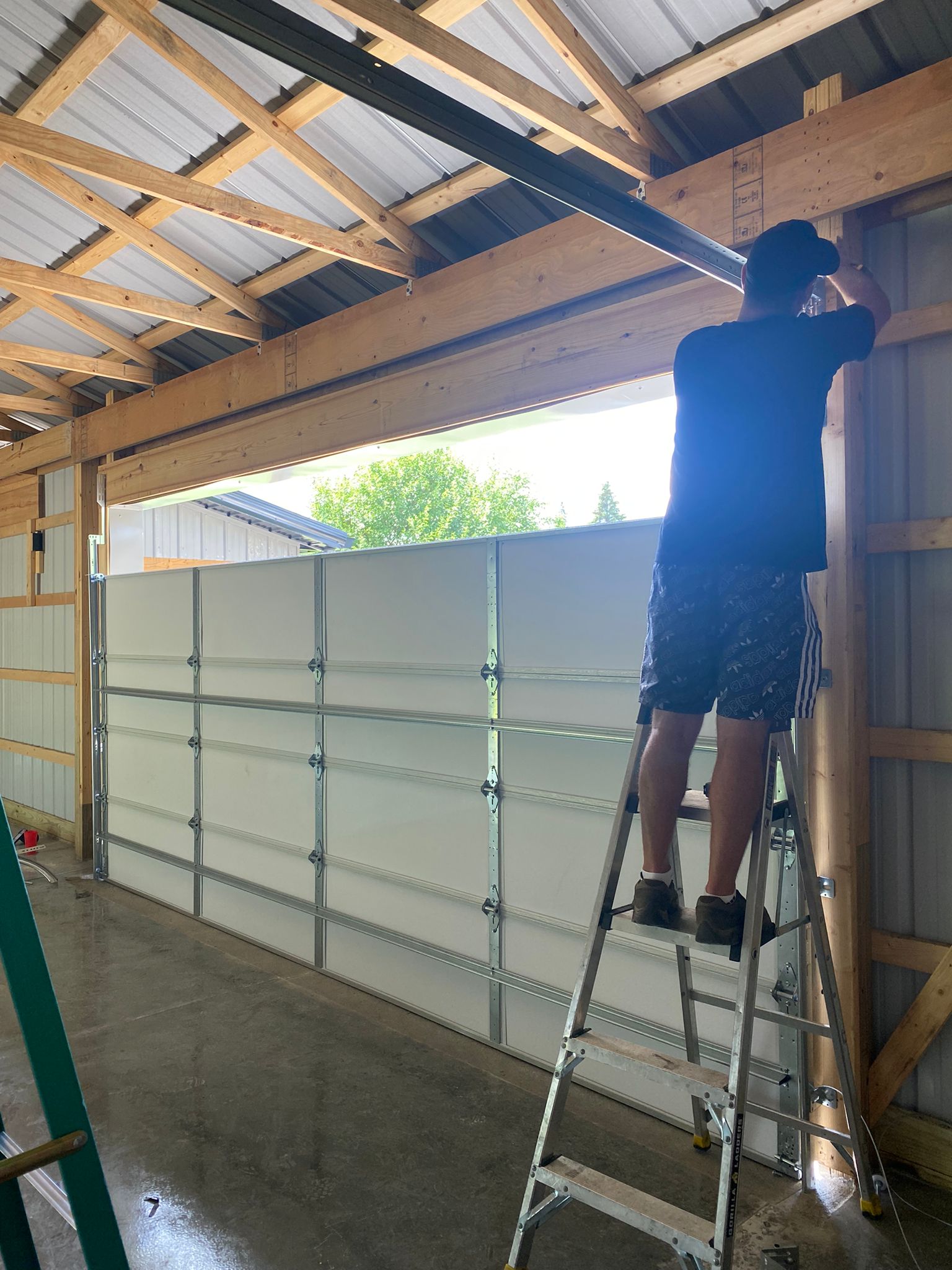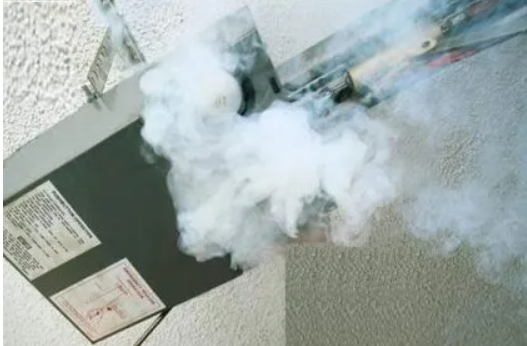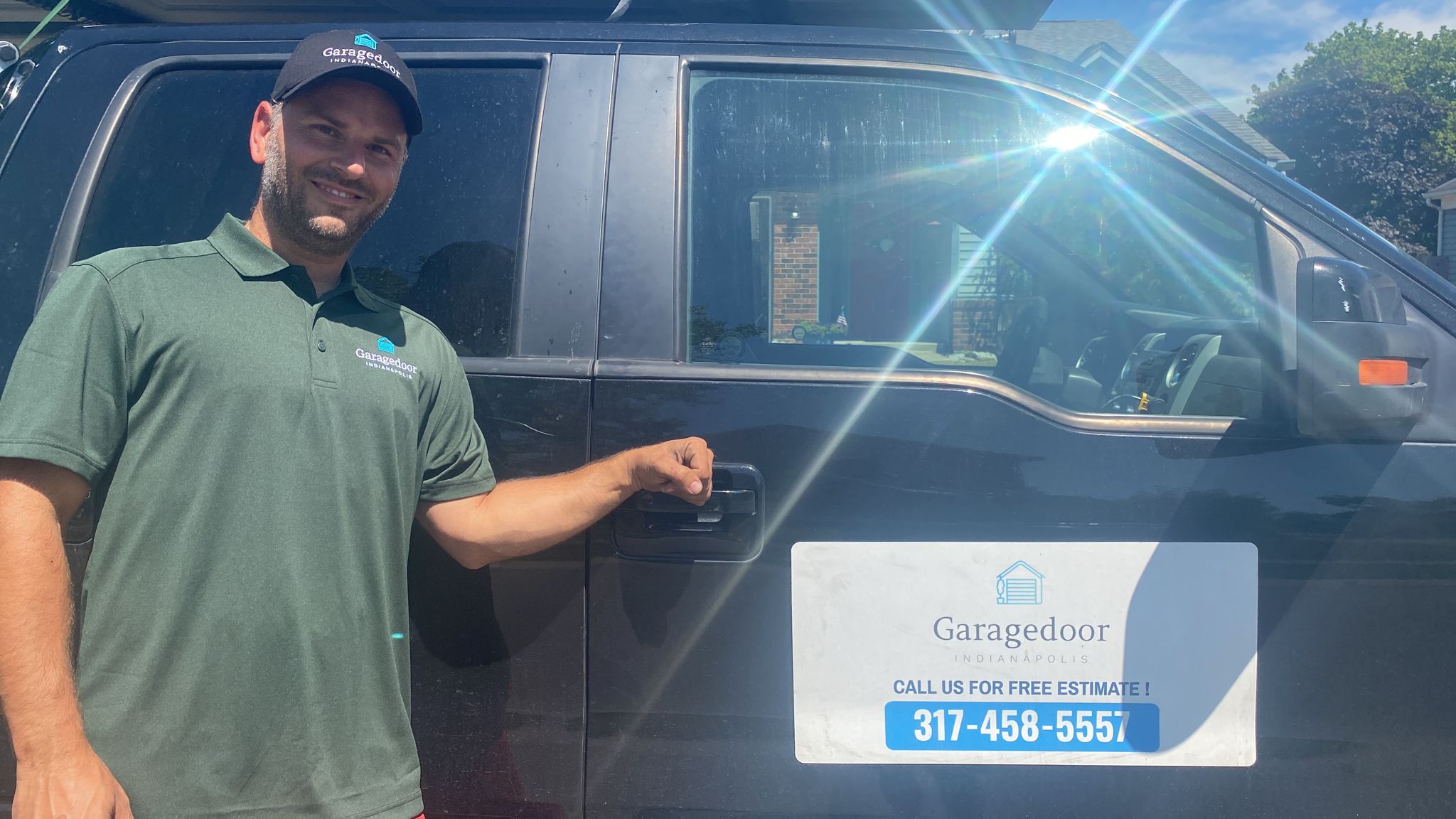accidents and danger regarding garage doors
Garage Doors Can Be Heavy And Potentially Dangerous If Not Handled Properly
Here are some common hazards associated with garage doors:
- Crushing injuries: If someone is underneath a closing garage door, they can be seriously injured or killed. It’s important to keep children and pets away from the garage door and to make sure the door is fully open before attempting to walk or drive underneath it.
- Falling doors: If the springs or cables on a garage door break, the door can fall suddenly and cause injury. It’s important to have a professional repair or replace any damaged parts to ensure the door is safe.
- Electric shock: Automatic garage doors operate using electricity, which means there is a risk of electric shock if the door or its components are damaged. It’s important to have any electrical issues repaired by a professional.
- Carbon monoxide poisoning: If your garage is attached to your home and you have a gas-powered vehicle, there is a risk of carbon monoxide (CO) leaking into your home if the door is not properly sealed. It’s important to have a CO detector in your garage and to make sure the door is properly sealed to prevent CO from entering your home.
Garage doors, while convenient and essential for many homeowners, can also present certain dangers if not properly maintained or used. Some of the most common accidents and dangers associated with garage doors include:
-
Crush injuries: Garage doors are extremely heavy and can cause serious crush injuries if someone is caught underneath when the door is closing. This is particularly dangerous for small children and pets.
-
Entrapment injuries: Garage doors can also cause entrapment injuries if someone’s fingers or other body parts get caught in the door’s moving parts.
-
Falls: Garage doors that are improperly balanced can cause falls, particularly if someone is climbing on or near the door when it starts to move.
-
Property damage: Garage doors that are not properly maintained can cause property damage, such as dents or scratches on cars or other objects that are parked in the garage.
-
Security risks: Garage doors that are not properly secured can pose security risks, as they can be easily forced open by burglars or other intruders.
To prevent these accidents and dangers, it’s important to take proper care of your garage door and opener. This includes regular maintenance and inspections, as well as proper use and operation of the door. It’s also important to keep children and pets away from the door while it’s in use, and to make sure that the door is properly secured when not in use.
Additionally, garage door opener should be installed and maintained by professional, and all the safety features such as sensors and automatic reverse should be checked periodically and repaired when needed.
- To minimize the risk of accidents and danger with your garage door, it’s important to have it regularly inspected and maintained by a professional, and to follow the manufacturer’s instructions for use. If you suspect there may be an issue with your garage door, do not use it until it has been repaired by a professional.
Safety standards for Garage doors
There are several safety standards that apply to garage doors. In the United States, the Consumer Product Safety Commission (CPSC) has established safety standards for residential garage doors.

These standards cover the design and construction of garage doors, as well as the safety features that must be included.
Some of the key safety features that must be included on residential garage doors include:
- Photoelectric sensors: These sensors detect when an object is in the path of the closing garage door and will reverse the door if necessary.
- Emergency release: A manual emergency release allows you to open the garage door manually in the event of a power outage or other emergency.
- Force settings: The force settings on a garage door opener control the amount of force the door uses to open and close.
The force must be set to stop the door from closing if it encounters an object in its path.
4.Tamper-resistant brackets: These brackets help prevent the door from being forced open by preventing the cables from being cut or otherwise damaged.
In addition to these safety features, it’s important to follow the manufacturer’s instructions for use and maintenance of your garage door to ensure it is safe to use.
It’s also a good idea to have your garage door inspected and maintained regularly by a professional
What is the average lifespan of a cheap garage door?
The average lifespan of a cheap garage door can vary widely based on several factors, including the quality of the materials used, the frequency of use, and the amount of maintenance it receives.
However, here is a general guideline:
-
Steel garage doors: Steel is a common material for garage doors, and a cheap steel door can have an average lifespan of 10-15 years. However, if it’s not properly maintained and exposed to harsh weather conditions, its lifespan may be shorter.
-
Aluminum garage doors: Aluminum garage doors are lightweight and durable, and a cheap aluminum door can have an average lifespan of 15-20 years. However, they can be prone to dents and scratches, which can reduce their lifespan.
-
Wood garage doors: Wood is a natural material that can add warmth and character to a home, but it also requires more maintenance than other materials. A cheap wood door can have an average lifespan of 15-20 years, but it will likely need to be repainted or refinished every few years to maintain its appearance.
-
Vinyl garage doors: Vinyl garage doors are durable and low-maintenance, and a cheap vinyl door can have an average lifespan of 20-25 years. However, they can be prone to cracking in extreme temperatures.
These are rough estimates, and the actual lifespan of a cheap garage door can depend on several factors, including the quality of the materials used, the manufacturer, and the climate conditions in which it’s installed.
Regular maintenance, such as lubricating the tracks and springs, can also help extend the lifespan of a garage door.
Regular Maintenance
Schedule regular inspections and maintenance for your garage door to ensure smooth operation. Lubricate moving parts such as hinges and rollers, and check for any signs of wear or damage on the door panels and tracks.
Automatic Reversal Mechanism
Ensure your garage door is equipped with an automatic reversal mechanism. This vital safety feature detects obstacles during the closing process and immediately reverses the door's direction, preventing accidents or damage.
Photoelectric Sensors
If your garage door features photoelectric sensors, verify their proper alignment. These sensors serve as the door's watchful eyes, detecting any obstructions in the door's path and ensuring it doesn't close on objects or individuals.
Proper Use of Emergency Release
Understand the correct usage of the emergency release feature on your garage door opener. This feature allows you to manually open and close the door in case of a power outage or malfunction, ensuring continuous accessibility.
Keep Remote Controls Secure
Secure your garage door remote controls to prevent unintended operation, especially in households with children. Store remotes out of reach and educate family members on the potential risks associated with unauthorized door access.
Educate Family Members
Ensure all family members are well-informed about the potential dangers associated with garage doors. Teach them how to operate the door safely and emphasize the importance of respecting the garage door as a powerful and heavy mechanical system.
Visual Inspection
Conduct regular visual inspections of cables, springs, and other hardware components. Look for any signs of wear, fraying, or damage. If you notice issues during your inspections, promptly consult a professional for thorough repairs and maintenance.
Professional Installation and Repairs
Ensure the proper functioning and safety of your garage door by having it professionally installed and repaired. Certified technicians have the expertise to install and maintain your garage door system, minimizing the risk of accidents and ensuring optimal performance.

